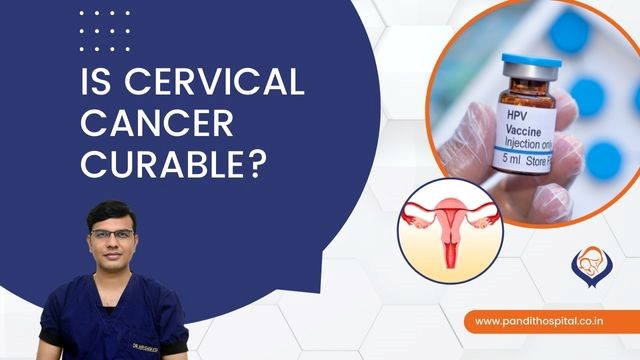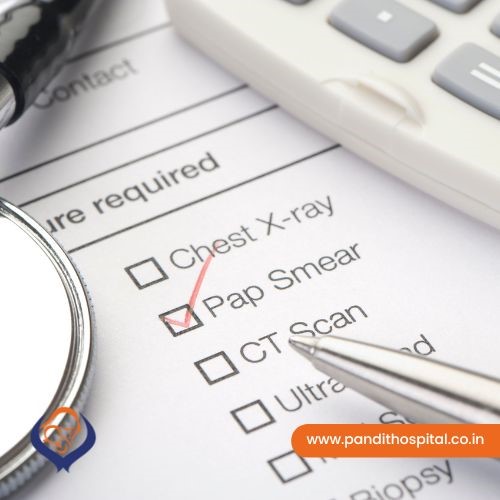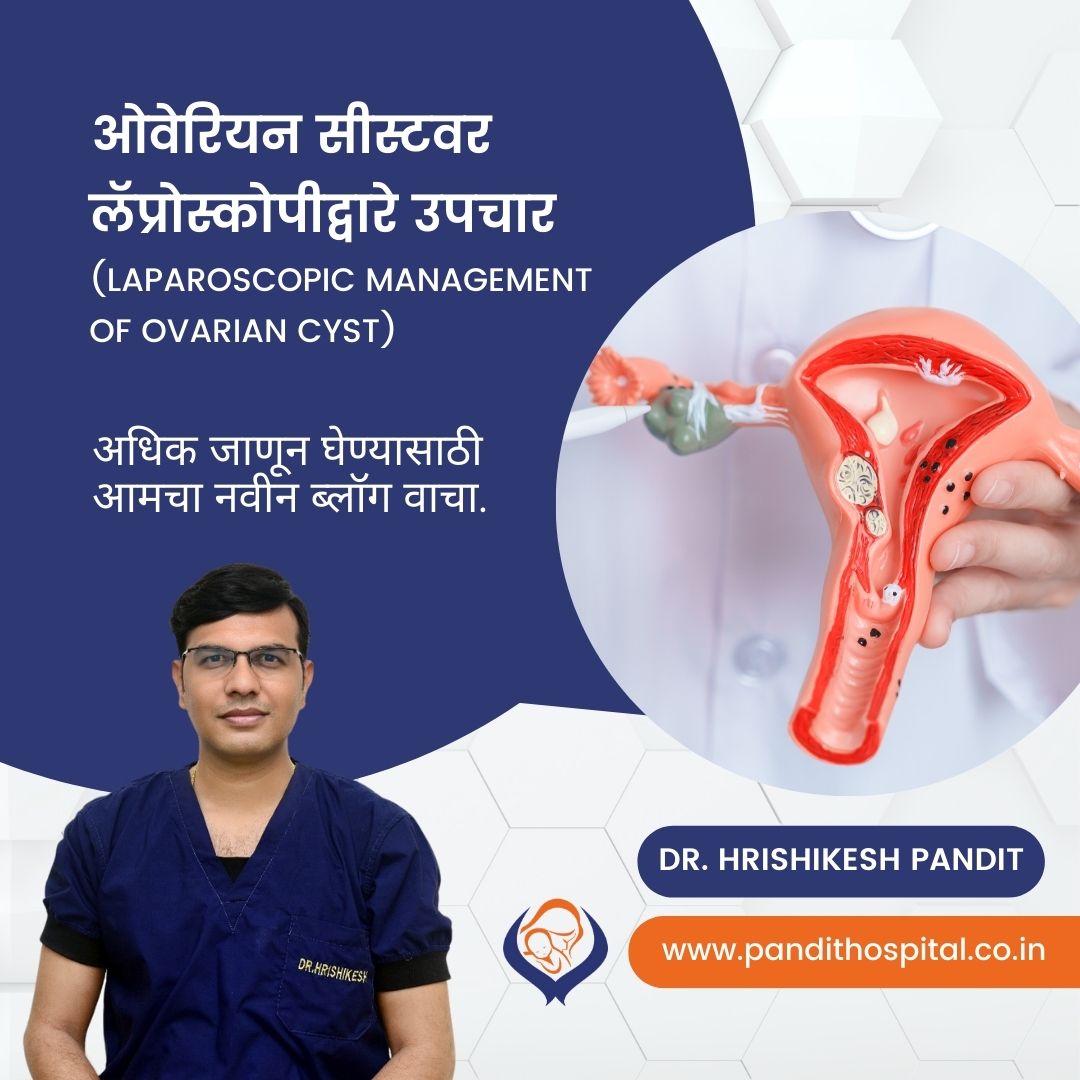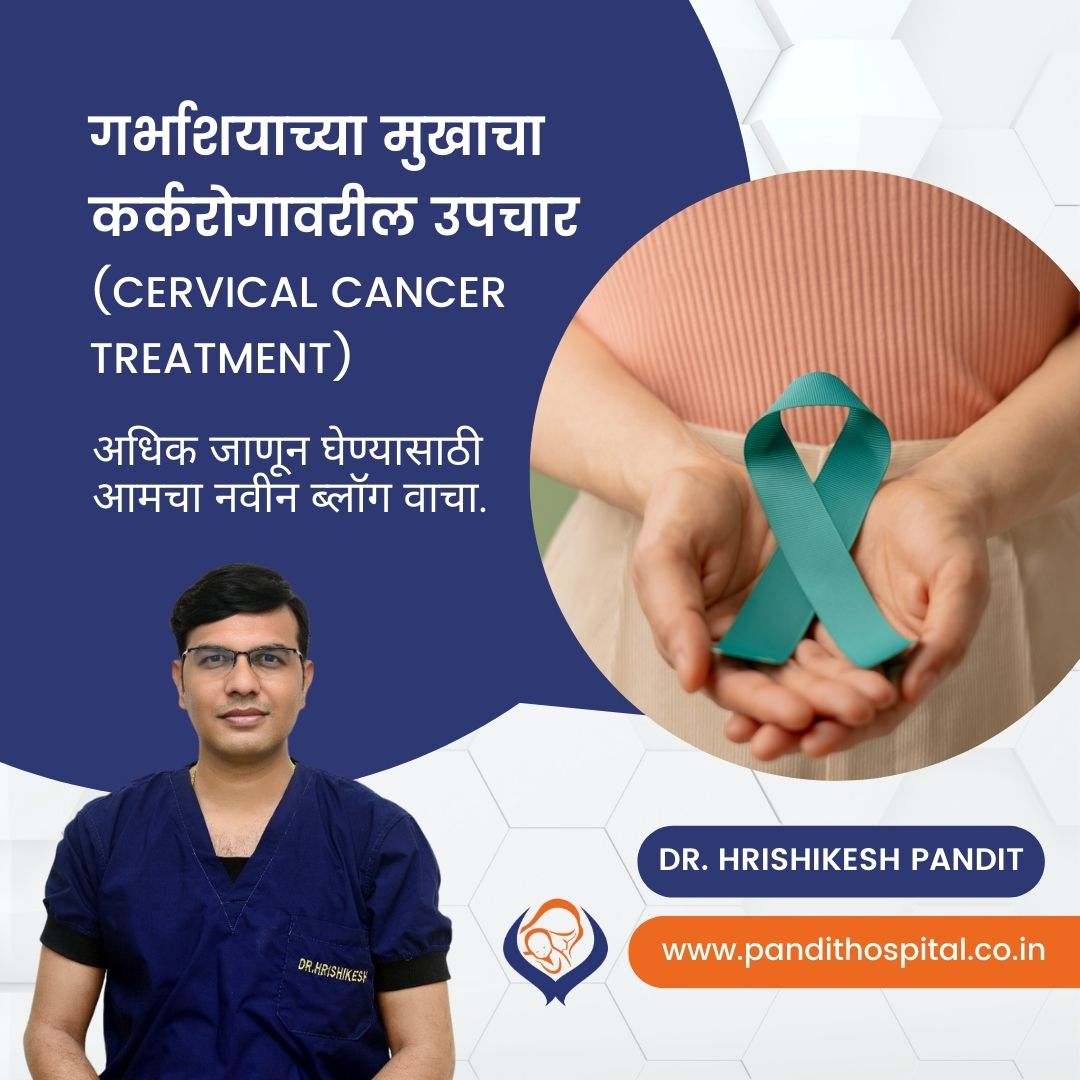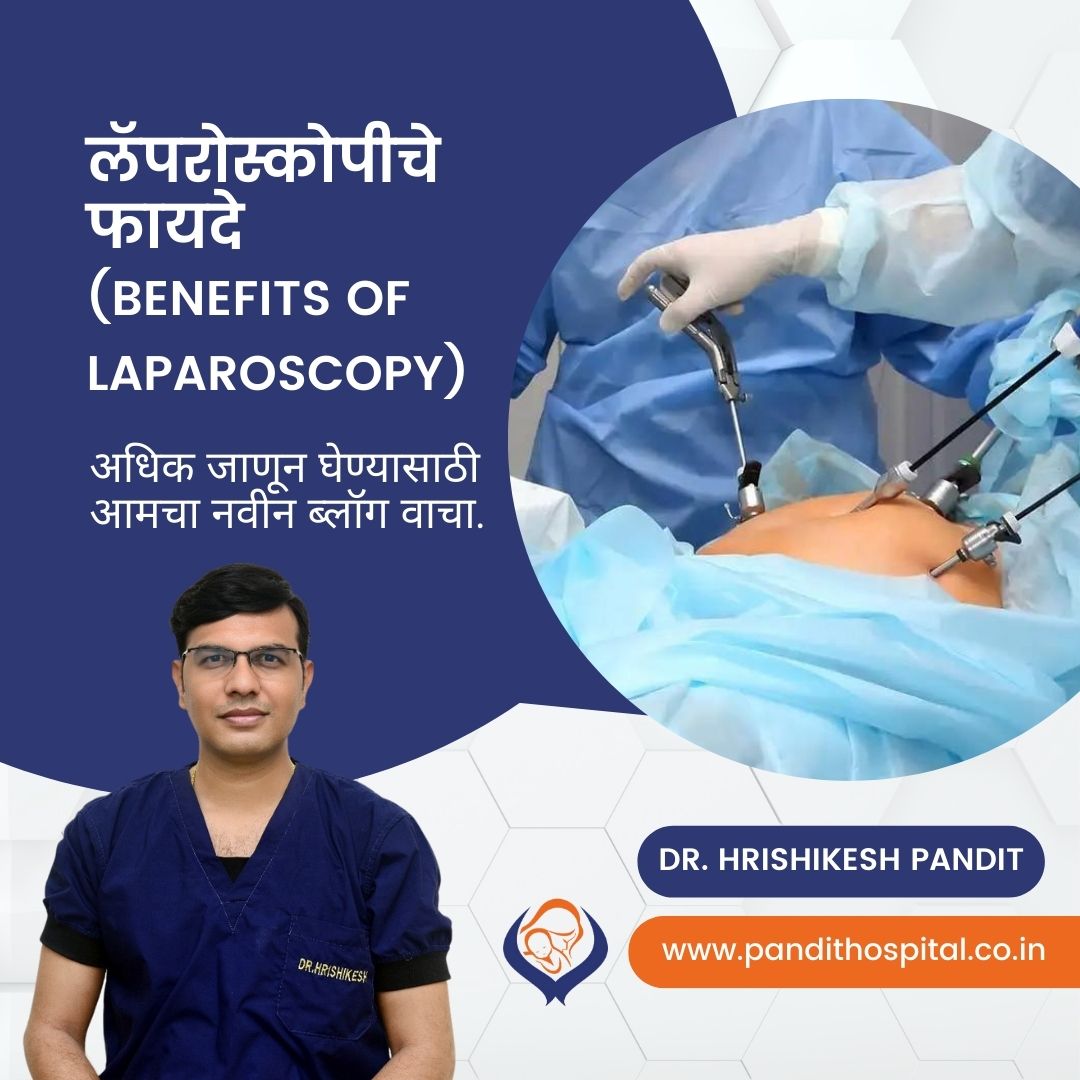Every year in India, 122,844 women are diagnosed with cervical cancer and 67,477 die from the disease. India has a population of 432.2 million women aged 15 years and older who are at risk of developing cancer. It is the second most common cancer in women aged 15–44 years. There is evidence that cervical cancer incidence is greater among women of lower classes, those less educated, and those with a larger number of children.
Regular screening is the best strategy to early diagnosis & treatment of cervical cancer. At Pandit Hospital, Ahmednagar, we provide screening and treatment modalities for cervical cancer.
What is cervical cancer?
Women’s cervix, which connects the uterus and vagina, is where cervical cancer develops when cells in the cervix alter. The main factor for cervical cancer is the human papillomavirus (HPV). The virus’s high-risk strains have a two-year maximum shelf life in the body before integrating with cells and causing cervical cancer.
What are the symptoms of cervical cancer?
In early stages of cervical cancer there will be no symptoms. That’s why, regular screening is very important. At later stages of cancer following symptoms can be seen:
- Pelvic pain.
- Bleeding between periods.
- Bleeding after sexual intercourse.
- Bleeding in post-menopausal women.
- Vaginal discharge with a strong odor.
- Discomfort during sexual intercourse.
What are the risk factors and cause of cervical cancer?
HPV Human Papilloma Virus is the most common cause of the cervical cancer. But there are other risk factors as well which can lead to HPV infection and leading to cervical cancer.
- Multiple sexual partners.
- Early sexual activity.
- Use of contraceptive pills.
- Other sexually transmitted infections (STIs).
- A weakened immune system.
- Smoking.
How to prevent cervical cancer?
- Regularly have pap smear testing:
Your first line of defense against cervical cancer is a Pap test. Your gynecologist will collect a sample of your cervical cells during a pelvic exam to check for cells that might develop into cancer.
- Get HPV vaccination:
Vaccines can aid in preventing some HPV infections in young adults.
- Safe sexual behavior:
Your risk of cervical cancer is reduced by limiting your sexual partners, using condoms, and refraining from sex at an early age.
- Quit smoking:
Reduce your risk of cervical cancer by quitting smoking.
What is the dosage and usage of HPV vaccine in cervical cancer prevention?
The intramuscular dosage of vaccination is 0.5 mL, either in the deltoid or anterior-lateral muscles. It is supplied in a single-dose vial or a prefilled syringe as a sterile suspension that should be shaken before use.
Vaccination should begin when a child is 9–12 years old. Up to the age of 26, catch-up immunization is authorized. With Gardasil, three doses at 0, 2, and 6 months are advised; with Cervarix, three doses at 0, 1, and 6 months are indicated (minimum interval of 4 weeks between the first and the second dose, 12 weeks between the second and third dose and 24 weeks between the first and third dose).
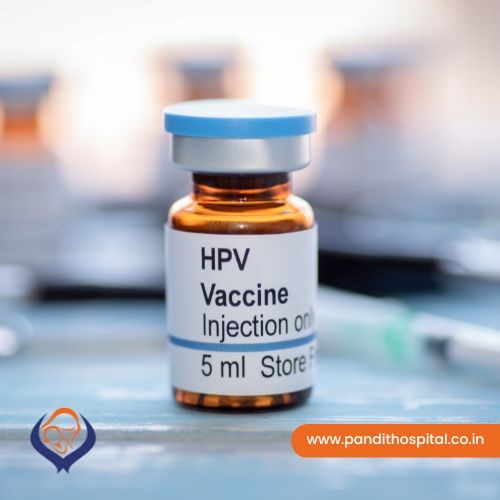
What are the screening methods of Cervical Cancer?
HPV test: This test is done on a sample of cells removed from the cervix; the same sample used for the Pap test.
Pap test: The Pap test has been the most common test for early changes in cells that can lead to cervical cancer. This test is also called a Pap smear. A Pap test involves gathering a sample of cells from the cervix. It is often done at the same time as a bimanual pelvic exam as part of a gynecologic checkup. A Pap test may be combined with an HPV test.
Visual inspection with acetic acid (VIA): VIA is a screening test that can be done with a few tools and the naked eye. During VIA, a dilution of white vinegar is applied to the cervix. The health care provider then looks for abnormalities on the cervix, which will turn white when exposed to vinegar. This screening test is very useful in places where access to medical care is limited.
Is cervical cancer curable? What is treatment of cervical cancer?
In some cases, cervical cancer is curable. Doctors consider a person as cured when the cancer goes away during treatment and never returns. However, it is difficult to know for sure that cancer will never come back. With early detection and stage wise treatment survival rate and period can be increased.
Stage wise cancer treatment for cervical cancer:
- Stage 1: Surgery is the main treatment. Some people also need chemoradiotherapy.
- Stage 2: The main treatments combine chemotherapy and radiation therapy. In some worst cases, a patient needs to undergo a radical hysterectomy followed by a session of radiation therapy.
- Stage 3: Chemotherapy and radiation therapy are given eventually. Sometimes, surgery is also conducted to remove pelvic lymph nodes afterward internal radiation therapy.
- Stage 4: The main treatments include chemo-radiotherapy. With this treatment, external radiotherapy is done for 5 consecutive days every week for around 5 weeks. If required, a boost of brachytherapy is done at the end of the course.
Dr. Hrishikesh Pandit, after completing MS degree in gynecology has also done fellowship in gynecological cancer treatment from Tata Hospital, Solapur. Under his leadership, Pandit Hospital has become the best gynecological cancer treatment center in Ahmednagar. Partial hysterectomy, radical hysterectomy surgery are done here with modern technologies.
At Pandit Hospital, you are in safe hands!
To consult Dr. Hrishikesh Pandit, Click Below,
Pandit Hospital – Best Maternity care center in Ahmednagar
LET’S SEE OUR INTRO VIDEO
At Pandit Hospital, we provide all the maternity services from antenatal to postnatal period under one roof
Let's Connect!!
Nagar - Pathardi Road, Bhingar, Ahmednagar, Maharashtra, India 414002
0241-2441717 / 0241-2442344
About author:
Dr. Hrishikesh Pandit:
Dr. Hrishikesh Pandit is one of the best obstetrician and gynecologist in India. He is also a well-renowned Laparoscopic surgeon. He obtained his MS (Ob Gyn) degree from the prestigious Pravara Institute of Medical Sciences. He has also done fellowship and diploma courses in laparoscopic surgeries and cancer treatment from Tata Hospital and Keil University, Germany. His surgical cases, papers and videos has been chosen in many international forums of gynecology.

Why Pandit Hospital?
At Pandit Hospital, we are always working hard to provide its patients with the highest level of medical innovation and patient care. With the aim of delivering complete maternity & gynecological care under one roof with the help of all contemporary amenities and cutting-edge medical equipment. Dr. Hrishikesh Pandit has a vision to bring the best of facilities regarding laparoscopy surgeries in the city of Ahmednagar. He is the pioneer of 3D Laparoscopy technology is Ahmednagar.
Latest Articles
Dr. Hrishikesh Pandit is one of the best laparoscopy surgeons in India. His determination to bring 3D Laparoscopy technology to Ahmednagar has eventually helped so many patients. Read the latest articles by Dr. Hrishikesh Pandit on Gynecology, gastric issues, and health tips for mothers during pregnancy.
Discover comprehensive ovarian cyst treatments at Pandit Hospital in Ahmednagar, Maharashtra, led by 3D Laparoscopic Surgeon Dr. Hrishikesh Pandit. Learn about types, symptoms, and both surgical and non-surgical treatments. Best ovarian cyst removal hospital in India.
गर्भाशयाच्या मुखाचा कर्करोग हा महिलांमध्ये होणारा दुसरा सर्वात गंभीर कॅन्सर आहे. वयाच्या 35 व्या वर्षानंतर या आजाराचा धोका फार वाढतो. गर्भाशयाच्या कर्करोगावर लॅपरोस्कोपी (दुर्बिणीने) शस्त्रक्रियेद्वारे उपचार केले जाऊ शकतात.
लॅपरोस्कोपिक शस्त्रक्रियेचे अनेक फायदे आहेत ✔ कमी वेदना ✔ कमी रक्तस्त्राव ✔ रुग्णालयात किमान मुक्काम ✔ जलद रिकव्हरी ✔ कमी कॉम्प्लिकेशन्स ✔ कमी टाके ✔अंतर्गत अवयवांना कमी इजा. Benefits of laparoscopy &Marathi)
FAQ
You should consult a doctor during the first 6 to 8 weeks of your pregnancy, or when your period is 2 to 4 weeks late.
If your contractions are 5 minutes apart, lasting for 1 minute, for 1 hour or longer, it’s time to head to the hospital.
Doctors recommend an infertility evaluation if you have not gotten pregnant after 1 year of having regular sexual intercourse without using birth control. If you are older than 35, an evaluation is recommended after 6 months of trying.
Yes, You can. But most babies need 39 weeks to develop fully. Induced or planned delivery before that time—without a valid medical reason—is not in the best interest of the baby or the mother. After 39 weeks you can plan delivery.
Women who are 21 to 29 should have a Pap test alone every 3 years. HPV testing alone can be considered for women who are 25 to 29, but Pap tests are preferred. Women who are 30 to 65 have three options for testing. They can have a Pap test and an HPV test (co-testing) every 5 years. They can have a Pap test alone every 3 years. Or they can have HPV testing alone every 5 years.
Laparoscopic hysterectomy is a safe and suitable procedure for chosen patients. It affords patients advantages like less peri-operative morbidity, better life quality, shorter hospitalization time, and faster return to activity.
Schedule a doctor’s visit if you have: Greenish, yellowish, thick or cheesy vaginal discharge; Strong vaginal odor; Redness, itching, burning or irritation of your vagina or the area of skin that surrounds the vagina and urethra (vulva); Bleeding or spotting unrelated to your period.
Painless delivery can be achieved using a form of regional anesthesia that provides pain relief during natural labor. Epidural anesthesia is administered through an injection on the lower back of the mother. The drug takes about 10-15 minutes to take effect.
Even in severe cases of endometriosis, most can be treated with laparoscopic surgery. In laparoscopic surgery, your surgeon inserts a slender viewing instrument (laparoscope) through a small incision near your navel and inserts instruments to remove endometrial tissue through another small incision.
The HPV vaccine is recommended for routine vaccination at the age of 11 or 12 years. (Vaccination can be started at age 9.) It is also recommended that vaccination for everyone through age 26 years if not adequately vaccinated when younger. HPV vaccination is given as a series of either two or three doses, depending on age at initial vaccination.

